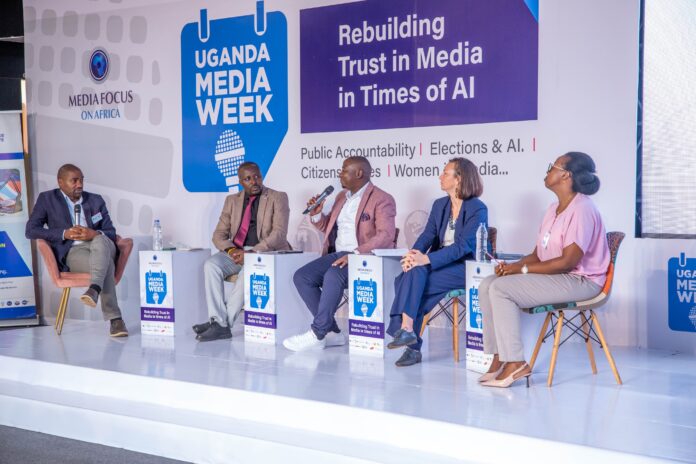
Media experts have urged journalists to uphold truth and integrity amidst tight deadlines so as not to compromise the principles of journalism, with complaints of misinformation by journalists on the rise.
This call was made during the Uganda Media Week, an initiative organized by the Media Challenge Initiative on November 7, 2024, at Media Challenge Initiative hub Kabalagala in Kampala.
Solomon Serwanja, the proprietor of the Africa Institute for Investigative Journalism, noted that as journalists, there may be pressure to submit a story quickly, but the core principles of journalism should not be compromised, stating that upholding truth and integrity even under pressure is what defines journalism.
“Journalists may often feel the pressure to submit stories quickly to beat the time aspect, but the core principles of journalism must never be compromised. When principles are compromised, it could have serious consequences. Upholding truth and integrity in the face of tight deadlines is what defines our profession,” he noted.
Serwanja added that journalists must never feel intimidated to bring out the truth about any matter in their stories, highlighting that in that way the principles of journalism are upheld.
“Most journalists get intimidated to pull down stories, which has become more common these days. For instance, the “foreign agent” label is used as a political weapon to discredit journalists and media outlets. Disinformation has become a powerful tool, especially during the elections, as seen in 2021,” he added.
Read Also: Prof. Lubinga Urges Media Fraternity to Embrace Digital World
Anna Reismann, a journalist at KAS Uganda and South Sudan, explained that disinformation is distorted information disseminated deliberately with a certain malicious intention, like igniting conflict, stating that these disinformation interests can either be for national malicious actors or sometimes foreign actors.
“Disinformation has clearly become a security threat being used as a psychological weapon in warfare, and it takes place in the digital space. Media houses can be channels through which disinformation is spread knowingly. Media houses should become professional in their work, not spread disinformation,” she said.
The two-day conference taking place from November 7-8, 2024, themed Rebuilding Trust in Media in Times of AI, is meant to dialogue about public accountability, elections, AI, citizens’ voices, and women in media.














